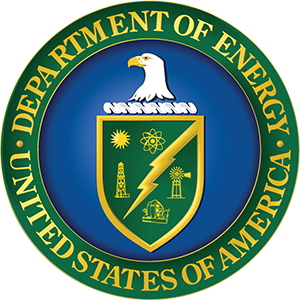2.5.0
A typical laboratory is three to four times more energy intensive than an average commercial building and can account for up to 70% of a campus' energy footprint, making laboratories a key focal area for energy and carbon management strategies at universities, corporations, national laboratories, hospitals, and federal agencies. If all laboratory buildings in the country improved their energy efficiency by 20%, annual energy and cost savings could reach about 40 trillion BTUs and $1 billion. The U.S. Department of Energy (DOE) Smart Labs Accelerator helps partners document model strategies that include operational changes, technological upgrades, and strategic energy management approaches.
Benchmarking is a crucial component of any energy management approach. Laboratory buildings have historically been underserved by the major benchmarking tools. The past year has seen the biggest shake–up in lab benchmarking since 2002: the old Labs21 Benchmarking Tool was retired and the new Laboratory Benchmarking Tool (LBT) was launched in March 2019.
Funded by DOE and developed by I2SL, LBNL, and kW Engineering, the LBT includes a modern graphing interface, updated data fields, and greatly expanded filtering capabilities. The LBT is still growing, with the addition of two new modules in 2019:
- The Actionable Insights module, sponsored by Siemens, helps to bridge the gap between benchmarking and action by automatically generating recommendations for energy–saving projects tailored to users' facilities.
- The Portfolio Manager Connection module, funded by DOE, enables automatic data upload from users' Energy Star Portfolio manager account to the LBT.
During this webinar, we'll give a demonstration of the LBT, focusing on the new features and how best to use them to further your sustainability goals. We'll also explain why a strong benchmarking tool is so important for labs, why submitting your data strengthens the LBT, and where we're planning on expanding the tool's functionality next, including a new module to benchmark operational practices in laboratories. The training will also highlight selected user perspectives.
Instructors
Alison Farmer, PhD, kW Engineering Read Bio
Alison Farmer is a former research astrophysicist who is dedicated to saving our home planet by bringing energy efficiency to laboratory buildings. Alison is a director at kW Engineering, where she focuses on energy analysis and on design and commissioning of HVAC control systems. In addition to serving as Secretary on the I2SL Board of Directors and President of I2SL's Northern California Chapter, Alison has chaired I2SL's Laboratory Benchmarking Working Group since its inception in 2014, and she was a 2018 recipient of the I2SL Go Beyond Award. She earned her bachelor's and master's degrees in physics from the University of Cambridge in England and a PhD in astrophysics from Caltech.
Paul Mathew, PhD, Lawrence Berkeley National Laboratory (LBNL) Read Bio
Paul Mathew is a staff scientist and department head of Whole Building Systems at Lawrence Berkeley National Laboratory (LBNL), where he conducts applied research and market transformation activities on energy use in buildings. His current work is focused on integrated building systems, energy epidemiology, benchmarking tools, and energy-related risk analysis. Prior to joining LBNL, he worked at Enron Energy Services and the Center for Building Performance at Carnegie Mellon University. He has authored over 100 technical papers, articles and reports. He received a U.S. presidential award for federal energy efficiency in 2007. He has a bachelor's degree in Architecture, and a Ph.D. in Building Performance and Diagnostics from Carnegie Mellon University.
Deirdre Carter, PE, Lawrence Berkeley National Laboratory (LBNL) Read Bio
Deidre Carter is the energy and sustainability manager and is part of the Sustainable Berkeley Lab team working to minimize the Lab's greenhouse gas emissions and environmental impact. She is broadly responsible for understanding, analyzing, and reducing Berkeley Lab's electricity, natural gas, and water consumption by implementing efficiency technologies and optimizing building system operations. She also tracks and reports Berkeley Lab's progress towards achieving Federal and UC sustainability goals. Deirdre previously worked as a mechanical engineer at Taylor Engineering, an Energy Analyst at DPR Construction, and an engineer at Thornton Tomasetti. She earned her M.S. from Stanford University and B.S.E. from Duke University, both in Civil and Environmental Engineering. She is a licensed Professional Mechanical Engineer.
Learning Objectives
Upon completion of this webinar, attendees will be able to:
- Explain why benchmarking for lab buildings is more challenging than for most other types of facility;
- List some new features of the Lab Benchmarking Tool and describe how to use them to benchmark lab facilities;
- Describe the ways in which the Actionable Insights module helps to bridge the gap between benchmarking and action; and
- Describe the ways in which the Portfolio Manager Connection module will help to grow the LBT's database.
This training also supports the following Federal Building Personnel Training Act goals:
- Demonstrate familiarity with building systems and knowledge of how they affect energy use.
- 2.5.4. Demonstrate knowledge of metering and sub–metering for energy and water and how they contribute to systems optimization.










